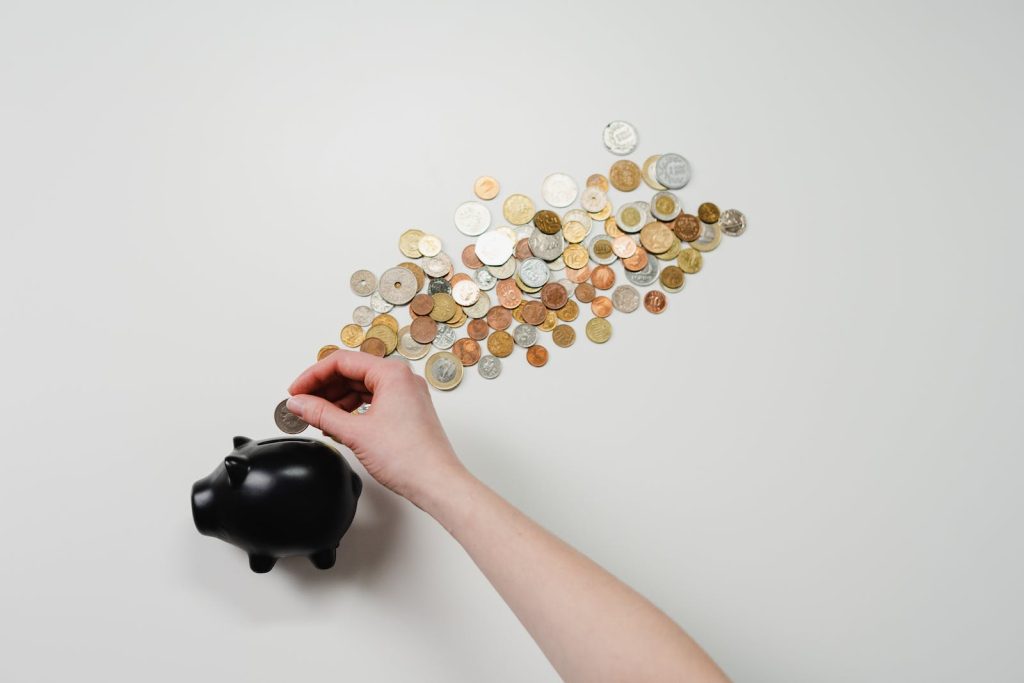In today’s world, more and more consumers are becoming conscious of the impact their financial choices have on the environment and society. As a result, there is a growing demand for ethical financial products that align with personal values and promote sustainability. In this guide, we will explore the importance of choosing ethical financial products, the criteria to consider when making these choices, and the various options available to consumers.
The Importance of Ethical Financial Products
Understanding the impact of financial choices
Financial decisions, such as where to invest or which bank to choose, can have far-reaching consequences beyond personal gain. They can support industries that prioritize sustainability, social responsibility, and ethical practices, or they can contribute to activities that harm the environment and exploit communities. By choosing ethical financial products, consumers have the power to drive positive change and encourage companies to adopt responsible practices.
Promoting sustainability and social responsibility
Ethical financial products are designed to support sustainable development and social responsibility. They prioritize investments in renewable energy, green technologies, and companies that demonstrate ethical business practices. By investing in these products, consumers can contribute to the transition to a more sustainable and equitable economy.
Criteria for Choosing Ethical Financial Products
Environmental considerations
When evaluating financial products for their environmental impact, consider the following criteria:
- Investment in renewable energy: Look for products that prioritize investments in renewable energy sources such as solar, wind, or hydropower. These investments contribute to the reduction of greenhouse gas emissions and the transition to a low-carbon economy.
- Exclusion of fossil fuels: Consider products that exclude investments in fossil fuel industries, such as coal, oil, and gas. By avoiding these industries, you can ensure that your investments do not contribute to environmental degradation and climate change.
- Sustainable agriculture and forestry: Look for products that support sustainable farming practices and responsible forestry. These investments promote biodiversity, protect ecosystems, and respect the rights of indigenous communities.
Social considerations
When assessing financial products for their social impact, consider the following criteria:
- Corporate social responsibility: Look for products that prioritize investments in companies with strong commitments to social responsibility. These companies may have policies in place to support fair labor practices, human rights, and community development.
- Ethical supply chains: Consider products that favor companies with transparent and ethical supply chains. These companies ensure that their products are produced under fair working conditions and do not involve child labor or exploitation.
- Community development: Look for products that invest in projects and initiatives that benefit local communities. These investments can support affordable housing, education, healthcare, and infrastructure development.
Governance considerations
When evaluating financial products for their governance practices, consider the following criteria:
- Transparency and accountability: Look for products that prioritize transparency and accountability in their operations. This includes disclosing their investment holdings, financial performance, and adherence to ethical standards.
- Executive compensation: Consider products that promote fair and reasonable executive compensation. This ensures that company leaders are not excessively benefiting at the expense of shareholders and other stakeholders.
- Shareholder engagement: Look for products that actively engage with companies in their investment portfolio to promote responsible practices. This can include voting on shareholder resolutions and advocating for positive change within companies.
Types of Ethical Financial Products
Ethical banking
Ethical banks are financial institutions that prioritize social and environmental impact alongside profitability. They may offer products such as current accounts, savings accounts, and mortgages that are aligned with ethical principles. These banks are often transparent about their investments and lending practices, allowing customers to make informed decisions.
Ethical investing
Ethical investing, also known as sustainable investing or socially responsible investing (SRI), involves selecting investments that align with personal values. This can be done through various approaches, such as negative screening (excluding certain industries), positive screening (investing in companies with positive social and environmental impact), or thematic investing (investing in specific sectors like renewable energy or healthcare).

Green bonds
Green bonds are fixed-income financial instruments that are specifically used to fund environmentally friendly projects. These projects can include renewable energy infrastructure, energy efficiency initiatives, sustainable transportation, and more. By investing in green bonds, consumers contribute to the financing of projects that have a positive environmental impact.
Impact investing
Impact investing focuses on generating positive social and environmental impact alongside financial returns. It involves investing in companies, organizations, or funds that aim to address social and environmental challenges. Impact investors measure the success of their investments not only by financial performance but also by the positive change they create.
Resources for Choosing Ethical Financial Products
Ethical finance organizations
There are several organizations dedicated to promoting ethical finance and providing guidance to consumers. Some notable examples include:
- The Global Alliance for Banking on Values (GABV): An independent network of banks and banking cooperatives committed to advancing positive change in the banking industry.
- The Principles for Responsible Investment (PRI): A United Nations-supported initiative that promotes responsible investment practices and provides resources for investors.
- The Forum for Sustainable and Responsible Investment (US SIF): A membership association that promotes sustainable, responsible, and impact investing in the United States.
Online platforms and tools
Several online platforms and tools can help consumers find and compare ethical financial products. These platforms provide information on the environmental, social, and governance performance of financial institutions and investment products. Some popular platforms include:
- Good Money: An online platform that offers ethical banking and investment options, allowing consumers to align their financial choices with their values.
- Sustainalytics: A research and ratings agency that assesses the ESG performance of companies and provides data for investors to make informed decisions.
- Morningstar Sustainability Ratings: Morningstar provides sustainability ratings for mutual funds and ETFs, enabling investors to evaluate the ESG performance of their investment options.
Conclusion
Choosing ethical financial products is a powerful way for consumers to have a positive impact on society and the environment. By considering the environmental, social, and governance criteria outlined in this guide, consumers can align their financial choices with their values. With the help of ethical banking, investing, green bonds, and impact investing, consumers can contribute to a more sustainable and equitable future. By utilizing the resources provided, consumers can make well-informed decisions and support financial institutions and investments that prioritize ethical practices and responsible decision-making.

































